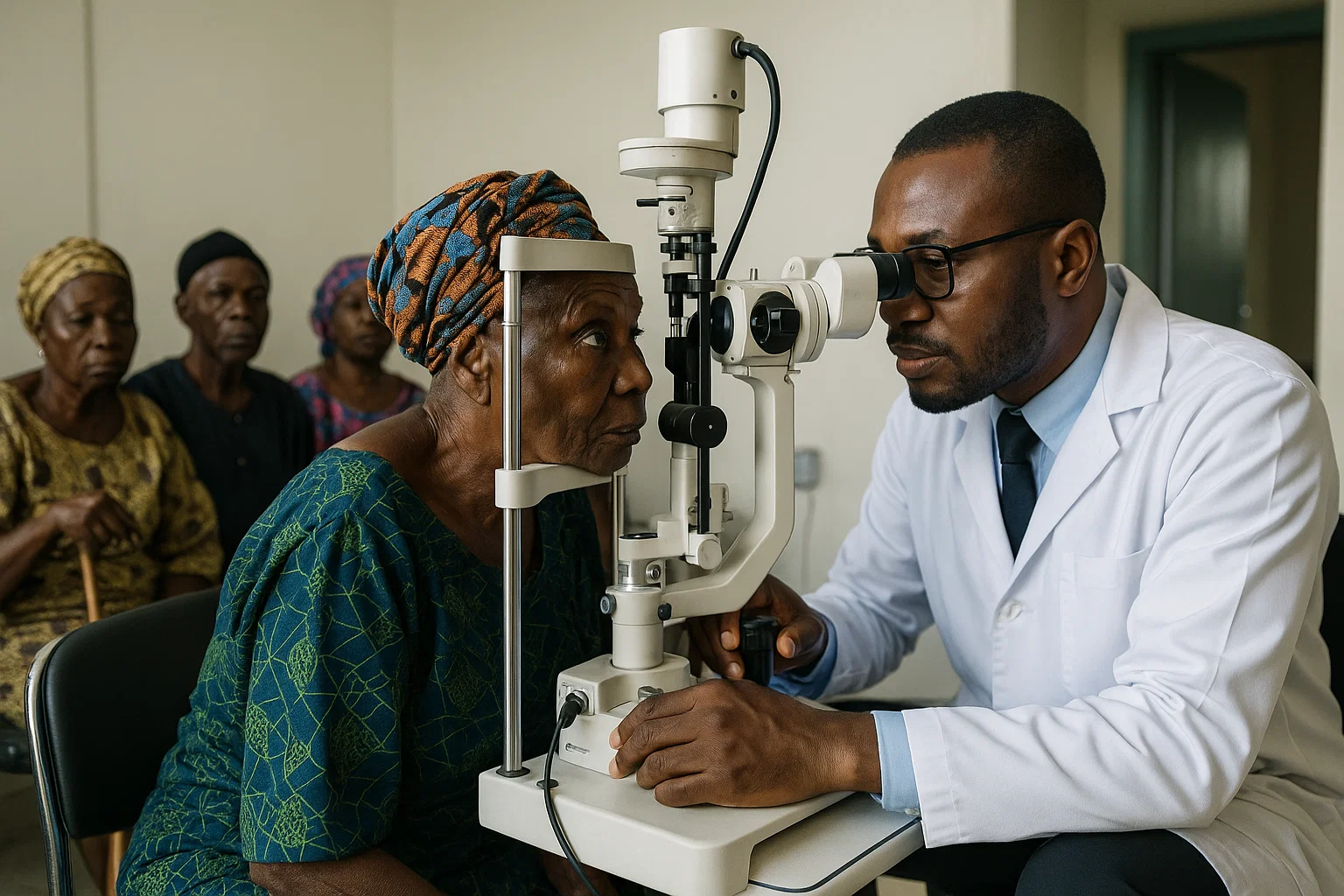HEALTH

24 MILLION NIGERIANS LIVING WITH VISION LOSS – DUFUTHS VC, PROF. UNEKE
The Vice Chancellor of David Umahi Federal University of Health Sciences (DUFUTHS), Uburu, Ebonyi State, Professor Jesse Uneke, has revealed that no fewer than 24 million Nigerians are currently affected by sight loss.
Professor Uneke, a specialist in Medical Parasitology and Health Policy/Systems, made this known during a press briefing at the launch of the university’s Free Eye Care Initiative and Eye Research Programme, held at the institution’s Institute for Eye Health and Visual Sciences Research (IEHVSR) in Ebonyi State.
Quoting findings from the Nigeria National Blindness and Visual Impairment Survey, he explained that about 4.2% of Nigerians above the age of 40 are blind, while an estimated 4.25 million adults in the same age group suffer moderate to severe visual impairment.
He emphasized that 84% of blindness in Nigeria results from preventable causes, underscoring the importance of regular eye checks, increased public awareness, and affordable treatment.
“Blindness in Nigeria is linked to advancing age and low literacy levels. Unfortunately, 84% of these cases are avoidable,” Uneke said.
According to him, cataracts and uncorrected refractive errors remain the leading causes of visual impairment, though glaucoma, age-related macular degeneration, diabetic retinopathy, infectious eye diseases, and trauma also contribute significantly.
The Vice Chancellor pointed out that limited access to basic eye care in low- and middle-income countries like Nigeria worsens the situation, especially for people living in rural areas.
To help reduce the burden, he noted that DUFUHS, with support from the Tertiary Education Trust Fund (TETFund), had established an Ultramodern Eye Centre and the IEHVSR — a cutting-edge facility dedicated to research, training, and patient care.
He further stated that the centre aligns with the World Health Organization’s SPECS 2030 initiative, which aims to expand access to affordable and quality refractive error services globally.
Highlighting its key objectives, Uneke said the Eye Centre seeks to increase access to eye care in rural communities, promote regular eye examinations, provide affordable treatment for underprivileged individuals, and create long-term, sustainable strategies for vision health.
He assured that the university would continue to strengthen its training, research, and community health initiatives in line with President Bola Ahmed Tinubu’s Renewed Hope Agenda, with the ultimate goal of curbing medical and educational tourism.
"This represents a significant development in our ongoing coverage of current events."— Editorial Board









